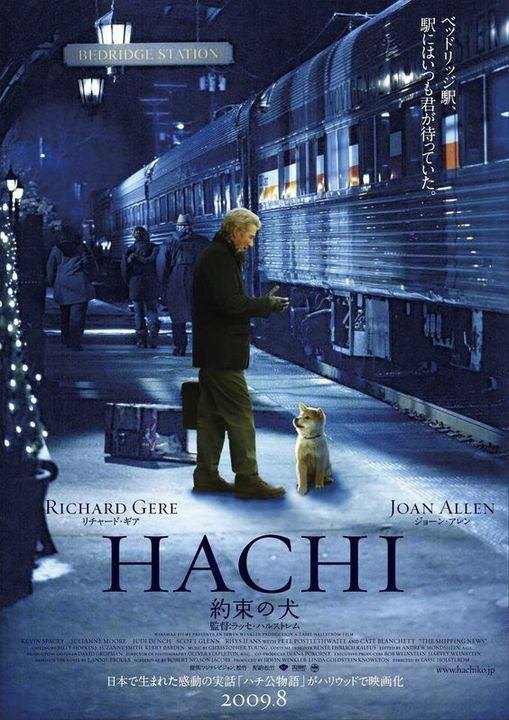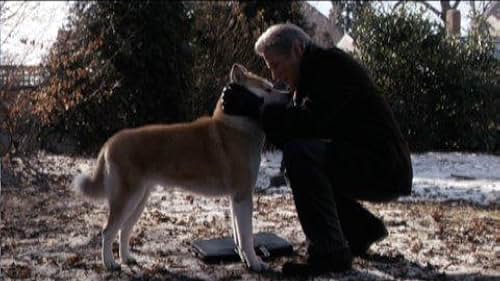Hachi: A Dog’s Tale (2009) – A Heartwarming Story of Loyalty and Devotion

Introduction: Hachi: A Dog’s Tale is a powerful and deeply emotional drama film released in 2009, directed by Lasse Hallström. Based on the true story of Hachiko, a loyal Akita dog in Japan, the movie tells a timeless tale of unwavering devotion and love. The film stars Richard Gere as Professor Parker Wilson, a music teacher whose life changes after adopting an abandoned puppy that becomes his constant companion.
Plot Overview: Set in a small town in the United States, Hachi is a stray Akita puppy found by Professor Parker Wilson at a local train station. After some initial resistance from his family, Parker decides to adopt the dog, naming him Hachi. Over time, the bond between Parker and Hachi becomes unbreakable, with the dog following Parker to the train station every morning and waiting for his return every evening.
However, tragedy strikes when Parker unexpectedly passes away while at work. Despite the heartbreaking loss, Hachi continues to wait at the train station every single day for nearly nine years, hoping for his owner to return. This daily vigil captures the hearts of the community and becomes a symbol of devotion and unconditional love.
Themes of Loyalty and Love: The film beautifully explores the themes of loyalty, love, and the profound connection between humans and animals. Through Hachi’s actions, the film highlights the extraordinary bond that can exist between a pet and its owner. Even in the face of overwhelming grief and loss, Hachi’s love remains constant, representing the power of devotion and faithfulness.
The idea of unwavering loyalty, particularly in animals, is a central theme throughout the story. Hachi’s decision to wait for Parker, even long after his death, challenges the notion of time and highlights the depth of his devotion. The movie demonstrates that love transcends physical presence and remains eternal in the hearts of those who experience it.

The Power of Community: As Hachi continues to wait for Parker at the station, he begins to touch the lives of those around him. The people in the community start to recognize the dog’s dedication and form emotional bonds with him. Hachi becomes a living symbol of loyalty, with many people who pass through the station offering him food and comfort, paying tribute to the bond he shared with his owner. This highlights how love and loyalty can inspire and unite communities, even in the face of loss.
The Emotional Impact: The film is praised for its emotional depth, with Hachi’s unyielding devotion tugging at the heartstrings of viewers. The bond between Parker and Hachi is not just heartwarming, but it also leaves a lasting impact. Their relationship is a reminder of the love and joy that pets can bring into our lives, and how their presence can have a profound effect on our emotions and memories.
The scene of Hachi waiting at the station, long after Parker’s death, resonates deeply with audiences, often bringing tears to their eyes. This powerful portrayal of a dog’s loyalty is one of the film’s most memorable aspects, showcasing the strength of the bond between animals and humans.
A Timeless Tribute to Unconditional Love: Ultimately, Hachi: A Dog’s Tale is a tribute to unconditional love, and a reminder of the precious bond we share with our pets. The film leaves audiences with a sense of reverence for the incredible loyalty and faithfulness that animals demonstrate, often without expecting anything in return.
Conclusion: Hachi: A Dog’s Tale is a heartwarming and moving film that beautifully portrays the love and devotion between a dog and his owner. Based on the true story of Hachiko, the film resonates deeply with audiences, becoming one of the most beloved dog films of all time. Through Hachi’s unwavering loyalty, the movie touches on the universal themes of love, loss, and the enduring bond between humans and animals.
In a world where such loyalty can sometimes seem rare, Hachi’s story serves as a poignant reminder that love is everlasting, and sometimes, our pets are the truest and most faithful companions we could ever have.











